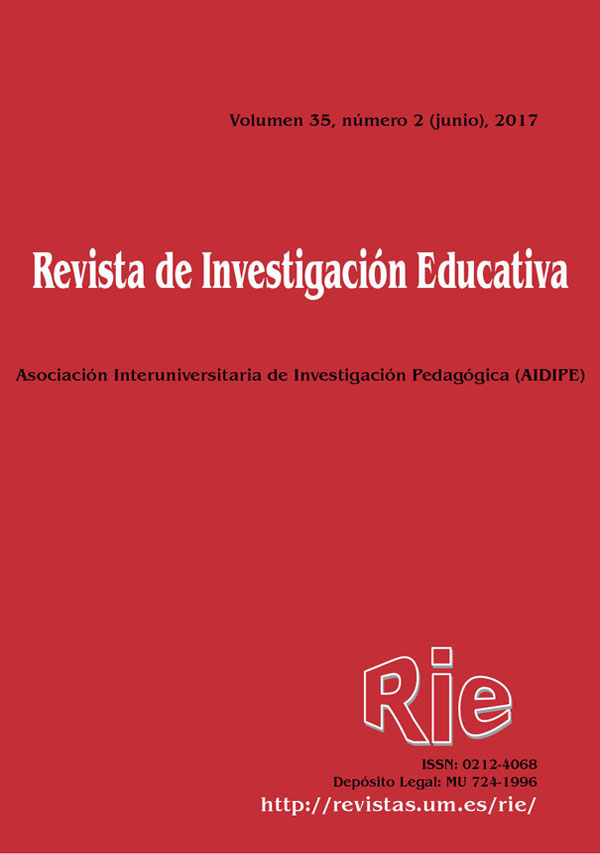Tutoring functions in e-learning: mixed study of the roles of the online tutor
Supporting Agencies
- Universidad de Málaga
Abstract
Since in 1924 the Pressey Testing Machine appeared in the history of education until 2013 where MOOCs are present worldwide, e-learning has evolved steadily. This has been partly because it is a new way of learning adapted to the needs of a changing society, where workers need to be trained outside their working hours. Along these lines, the research in the implicit processes in the e-learning becomes essential in order to improve the quality of this modality of training. Therefore, the objective of this research was to 1) analyze the functions that trainers carry out in their training actions and 2) investigate student´s appreciation of these functions. The methodology applied was a mixed design to best fit the objectives of the research. A sample of 707 students and another sample of tutors of 29 courses were used, both belonging to a continuous training project of workers of small and medium-sized enterprises (SMEs), From the results it is possible to know the functions that tutors have been carring out and, from there, build some “theoretical framework” for understanding the relationships between categories and dimensions underlying this kind of training. Likewise, it has been possible to determine different typologies of tutors depending on the roles they have played.
Downloads
-
Abstract2783
-
PDF (Español (España))2011
References
Aballay, L., Aciar, S., González, C., & Collazos, C. (2016). Método de Medición de la Percepción de los usuarios sobre los sistemas E-Learning de los Centros e Institucio- nes Educativas. International Journal of Information Systems and Software Engineering for Big Companies (IJISEBC), 3(1), 28-42. http://www.uajournals.com/ojs/index.php/ijisebc/article/view/123/110
Cabero, J. (2013). El aprendizaje autorregulado como marco teórico para la aplicación educativa de las comunidades virtuales y los entornos personales de aprendizaje. Revista Electrónica Teoría de la Educación: Educación y Cultura en la Sociedad de la Informa- ción. 14(2), 133-156. http://www.redalyc.org/pdf/2010/201028055006.pdf
Cabero, J., & Llorente, M.C. (2010). Comunidades virtuales para el aprendizaje. EDUTEC, Revista Electrónica de Tecnología Educativa, 34, 1-10. http://dx.doi.org/10.21556/edutec.2010.34.419
Curci, R. (2014). Satisfacción de los estudiantes respecto a las acciones formativas e-learning en el ámbito universitario. Pixel-Bit. Revista de Medios y Educación, 44, 215-229. http://dx.doi.org/10.12795/pixelbit.2014.i44.15
Fandos, M., & Cano, J. (2013). Formación a distancia y retos actuales en los roles docen- tes y su vinculación con la empresa: propuesta y controversias. Revista Electrónica de Tecnología Educativa, 45, 1-13. http://dx.doi.org/10.21556/edutec.2013.45.14
Fernández-Jiménez, M.A., Tójar-Hurtado, J.C., & Mena-Rodríguez, E. (2013). Evaluación de buenas prácticas de tutorización e-learning. Funciones del teletutor y su papel en la formación. Píxel-Bit. Revista de Medios y Educación, 43, 85-98. http://dx.doi.org/10.12795/pixelbit.2013.i43.08
Fernández Robles, B., & Cabero, J. (2016). Percepciones de teleformadores del Insti- tuto de Formación y Estudios Sociales de Sevilla sobre la teleformación. Innoeduca. International Journal of Technology and Educational Innovation, 2(1), 4-12. http://dx.doi.org/10.20548/innoeduca.2016.v2i1.1218
Fidalgo, Á., Sein-Echaluce, M.L., Lerís, D., & Castaneda, O. (2013). Teaching Innova Pro- ject: the Incorporation of Adaptable Outcomes in Order to Grade Training Adapta- bility. Journal UCS, 19(11), 1500–1521. http://dx.doi.org/10.3217/jucs-019-11-1500
García Teske, E. (2007). El “abandono” en cursos de e-learning: algunos aprendizajes para nuevas propuestas. Revista Iberoamericana de Educación, 44(3), 1-16. https://dialnet.unirioja.es/servlet/articulo?codigo=2471855
Llorente, M.C. (2006). El tutor en E-learning: aspectos a tener en cuenta. Eductec. Revista electrónica de Tecnología Educativa, 20. http://edutec.rediris.es/Revelec2/revelec20/llorente.htm
Llorente, M.C. (2005). La tutoría virtual: técnicas, herramientas y estrategias. Conferencia presentada en Eduweb (Valencia-Carabobo-Venezuela). http://tec-nologiaedu.us.es/bibliovir/pdf/tutoriavirtual.pdf
Marcelo, C. (2011). E-learning en la formación para el empleo: ¿qué opinan los usua- rios?. Revista de Educación, 355, 285-308.
Picón, M. (2013). Guía de tutorización e-learning. Orientaciones básicas sobre la docencia en modalidad de teleformación. Ingeniería e Integración Avanzadas (Ingenia). Instituto Andaluz de Administración Pública Sevilla: Instituto Andaluz de Administración Pública. Junta de Andalucía. http://www.juntadeandalucia.es/agenciadecalidadsanitaria/formacionsalud/export/sites/default/galerias/aportesDocumentos/pildora/1371807956935.pdf
Reigeluth, C. (2012). Teoría instruccional y tecnología para el nuevo paradigma de la educación. RED, Revista de Educación a Distancia, 32. https://www.um.es/ead/red/32
Rodríguez, N. (2014). Fundamentos del proceso educativo a distancia: enseñanza, aprendizaje, evaluación. Revista Iberoamericana de Educación a distancia, 17(2), 75-99.
Sánchez López, M.E, & Gallego, A. (2014). La función tutorial ante el reto de la ense- ñanza online: algunas experiencias. Docencia y Derecho, Revista para la docencia jurídica universitaria, 8. https://www.uco.es/docencia_derecho/index.php/reduca/article/viewFile/84/107
Schneeberger, A. (2006). Cualificados para la Sociedad del Conocimiento y de los Ser- vicios. Tendencias que determinan la futura demanda de forma inicial y continua. Revista Europea de Formación Profesional, 38(2), 6-25. http://www.oei.es/etp/cualificados_sociedad_conocimiento_servicios.pdf
Volles, N. (2016). Lifelong Learning in the EU: Changing Conceptualisations, Actors, and Policies. Studies in Higher Education, 41(2), 343-363.
The articles and scientific documents published in RIE abide the following conditions:
1. The Servicio de Publicaciones de la Universidad de Murcia (the publisher) has the property rights (copyright) of all the documents published and allows the reuse under the user’s license indicated in point 2.
2. All documents are published in the digital edition of RIE under a Creative Commons Reconocimiento-NoComercial-SinObraDerivada 4.0 Internacional. (legal document) license. These documents can be copied, used, distributed, communicated and explained publicly if: i) the author(s) and its original source of publishing (magazine, publisher and URL of the document) are cited; ii) it is not used for commercial purpose; iii) the existence and the specifications about this license are mentioned.
3. Auto-archive’s conditions. The authors are allowed and encouraged to digitally distribute the pre-print versions (a version before evaluation) and/or post-print (a version that it is already evaluated and accepted to its publication). This promotes circulation and distribution earlier and can increase the citations and significance within the academic community.









